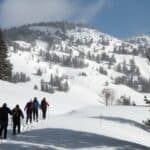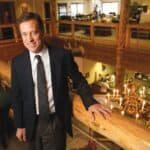Read The
Current Issue
Still a Hoot
In its 31st year, the acoustic music gathering the Hootenanny continues to delight performers and audiences.
// By Jim Stanford
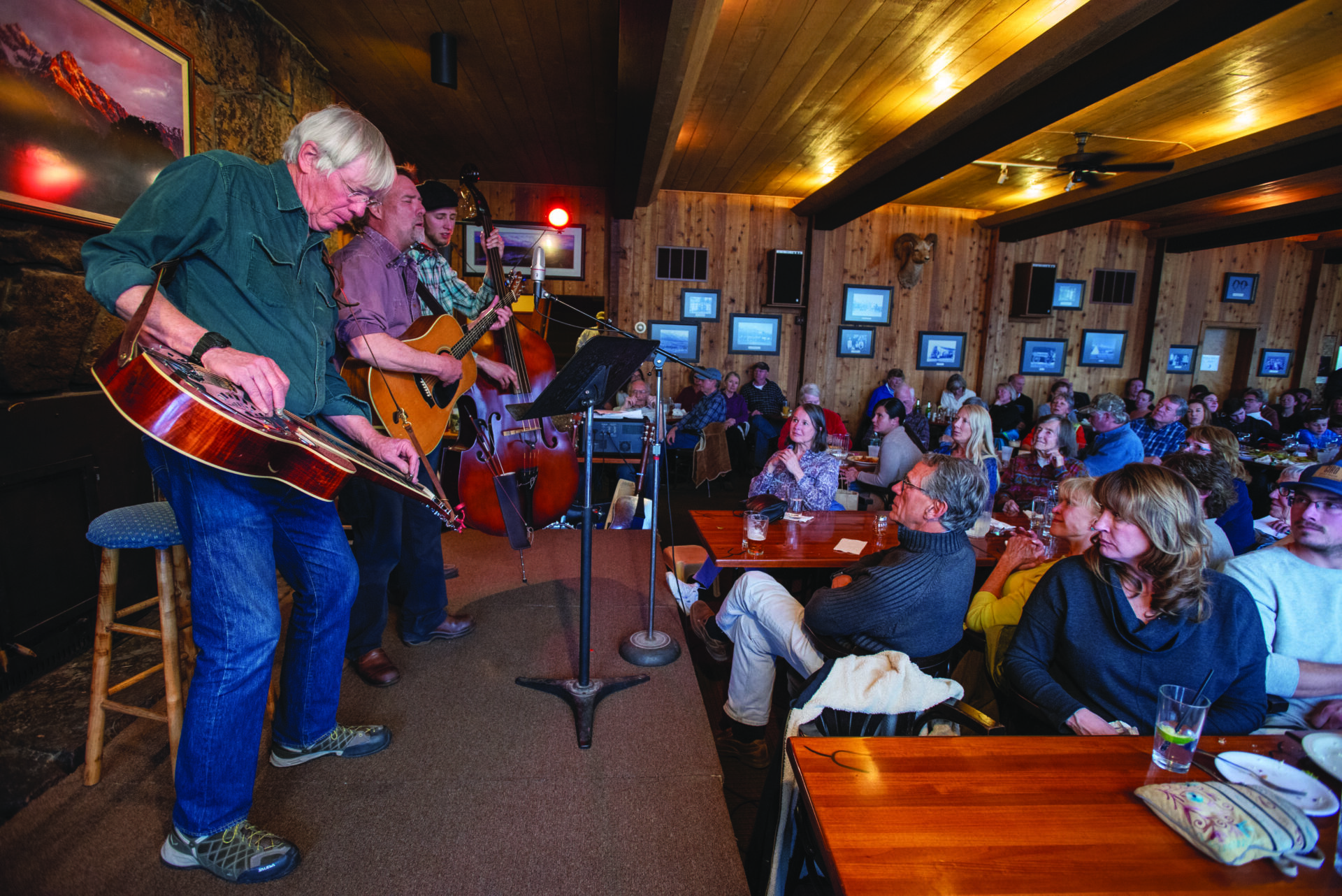
Smoke wafted from the campfire beneath the Moose bridge late one July night in 1958 as a motley band of climbers and folk musicians huddled around the riverfront campsite of Bill Briggs. An aspiring climber and ukulele player working for the summer on a highway crew, Briggs had boiled tea in a big black kettle and poured a bottle of cheap wine from Dornans into it. When the pickers and singers arrived, about 8 or 10 in all, they each dumped a bottle or flask—usually wine but sometimes moonshine or anything alcoholic—into the mix to make what came to be known as “Teton Tea.”
Dick Barker, a redheaded fishing guide from Carmichael’s Tackle Shop, came down from his family’s home on Ditch Creek. Barker had been spending summers in Moose while on break from Colorado State University, guiding fishermen and playing folk music to entertain guests at many of the dude ranches, where he met Briggs. The troubadour joined the circle sitting on river rocks and strummed an old guitar. Eventually, the parties drew quite a crowd, and after a group of bikers called the Vulgarians took part, the Park Service chased Briggs from beneath the bridge, citing too much smoke from his campfire.
Sixty-five years later, the spirit of these “Teton Tea Parties” lives on, and the strains of folk music from impromptu jams can be heard at the weekly Hootenanny. The acoustic open mic takes place at 6 p.m. every Monday in the Wort Hotel’s Silver Dollar Bar in downtown Jackson from December through March. In summer it shifts to its traditional home at Dornans in Moose. Craft beers and cocktails have replaced Teton Tea as the beverages of choice, but the fire crackles in the Wort’s lobby, and music and kinship still warm the soul, particularly on long winter nights. Some of the tunes are even the same, protest songs and working-class anthems—and among the regular performers is Briggs, who turned 92 in December.
There have been more than 1,300 Hootenannies since its inception in 1993. Many of the performers are residents who have played dozens or hundreds of Hoots, but the event attracts seasonal workers and even visitors passing through. Organizers keep meticulous track of who performs each night, often recording audio or video.
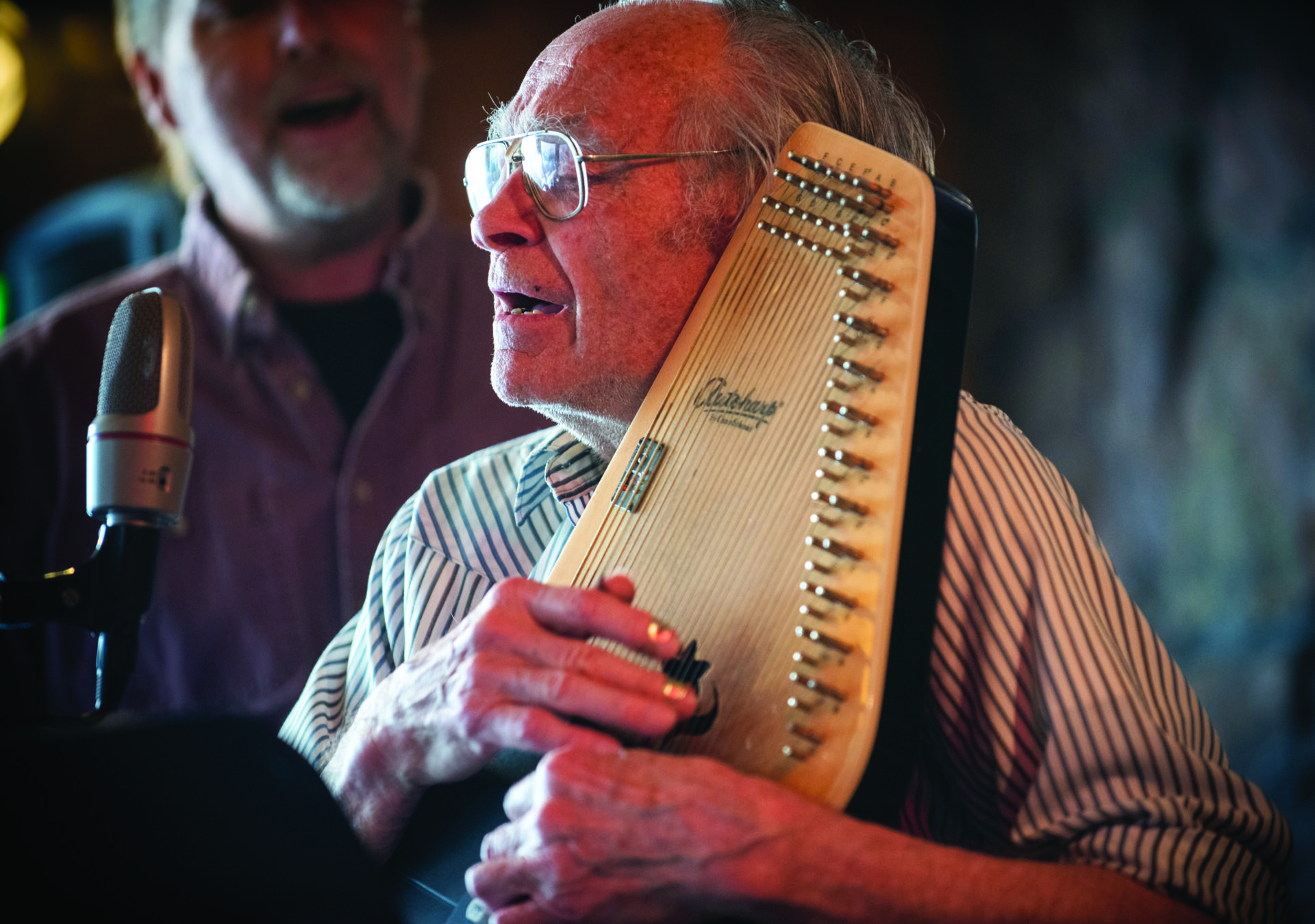
After several attempts to host a folk festival and coffeehouse in the 1960s, Barker and Briggs started the Hootenanny in 1993 when they persuaded Bob Dornan that they could draw a larger crowd to the bar than Monday Night Football. Instantly, the event became a hit. What distinguished the Hoot was its emphasis on listening: no talking is allowed while performers are on stage. The musicians use no plug-in amplified instruments, only microphones.
Last February, when the Hootenanny celebrated its 30th anniversary, Briggs recounted how he and Barker used to see professional musicians perform at places like the Wort, and they wondered if they, too, could put on such a concert. “Here we are, and we’re not pro, and we still have a crowd of people,” Briggs said. He closed his eyes, strummed his autoharp, and began crooning Woody Guthrie’s “Roll On, Columbia,” which he had performed at the very first Hootenanny. “Roll on, Columbia, roll on!” Briggs sang as the audience joined in on the chorus. “The power is turning our darkness to dawn.”
Like the song, celebrating hydropower on the river, the Hootenanny rolls on, a light through winter’s darkness, with all sorts of performers staying true to the tradition. John Denver, in town for concerts at Teton Village, played a few tunes in 1996. There are guitars, banjos, fiddles, harmonicas, and an occasional dulcimer or a cappella voice. Each musician signs up that night to perform one or two songs, and sometimes they decide to collaborate on the spot. Styles range from folk, country, and bluegrass to a bit of rock. The performances can span generations, as when singer and guitarist John Sidle—who took part in one of Briggs’ tea parties in Schenectady, New York, in 1961 and moved to Jackson Hole in 1969—is joined by his son, Rob, on standup bass for “The Drift,” a song the elder Sidle wrote about Green River Valley cattle moving down from the mountains each fall “racing ahead of the fast-falling snow.”
Ward attributed the event’s success to Briggs’s “patient, positive persistence in a warm and approachable way that attracted musicians from near and far.”
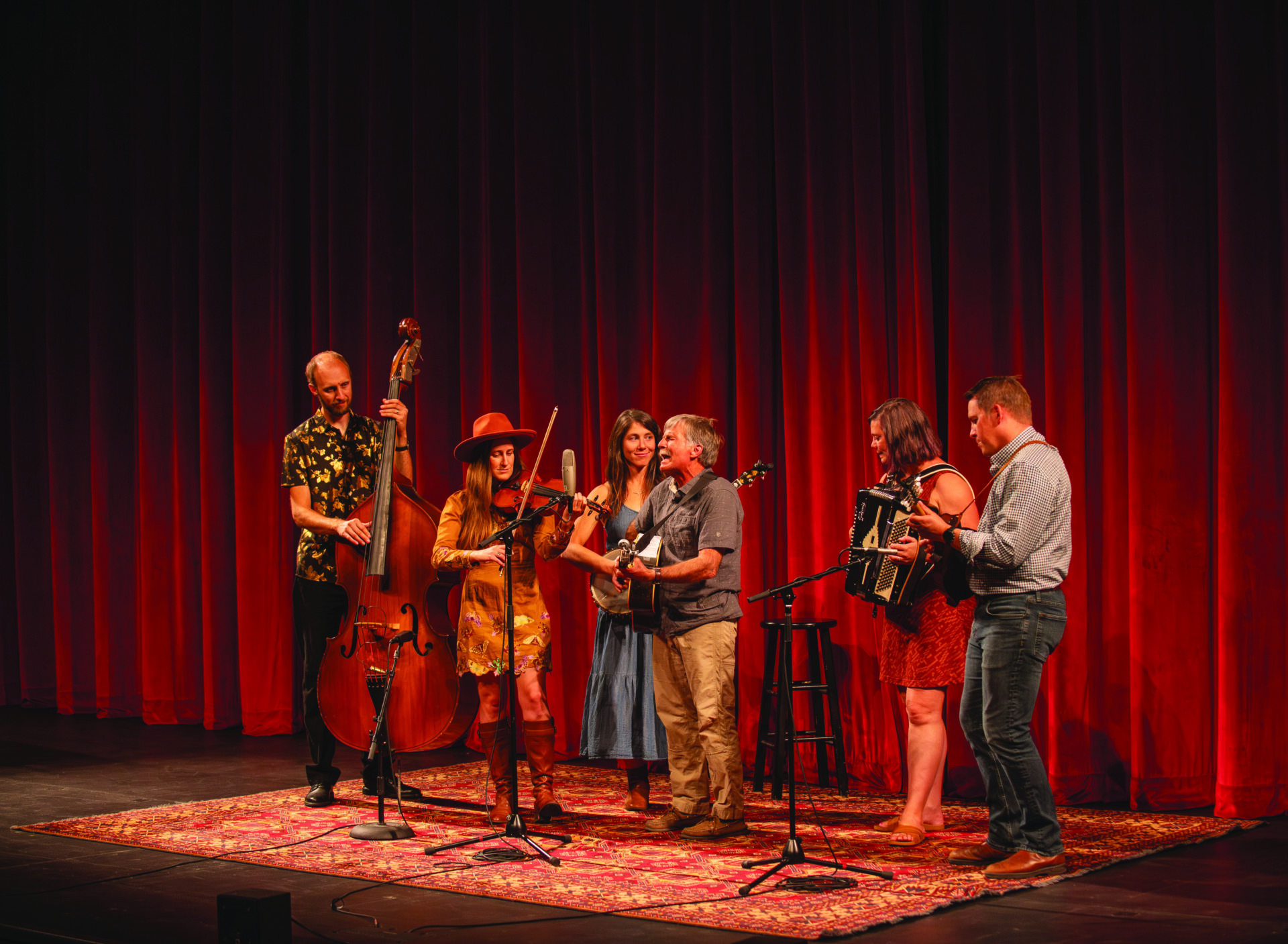
Peter Ward, emcee of the 30th anniversary, first performed at the Hoot in 1995, when he proposed to his wife, Adrienne, another regular performer, on stage. Ward attributed the event’s success to Briggs’s “patient, positive persistence in a warm and approachable way that attracted musicians from near and far.” Today, on any given week, a cowboy could roll into town off a ranch in a 10-gallon hat with spurs still on his boots and strum a guitar after—or even along with—kids in tie-dyes and sandals.
Barbara Barker, 85, wife of the late co-founder, still helps organize the event. When she was in college, working for the summer at the Block S Ranch (now Lost Creek Ranch), she would borrow a car from a park ranger to drive to Moose to listen at the Teton Tea Parties. “It was fantastic,” she says. “Everybody played nice, old folk tunes. It was really interesting music.” After a recent Hoot, held a stone’s throw from the Moose bridge before an overflowing crowd, the glimmer in her eye attested to the night’s enduring magic. JH



